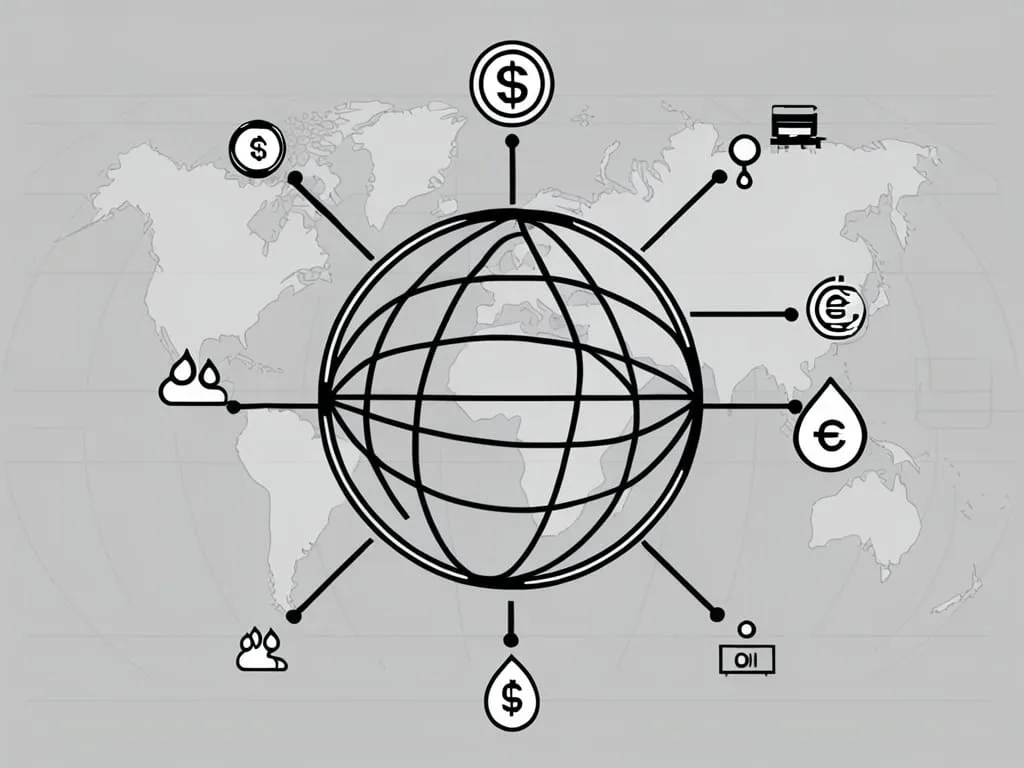As we stand at the threshold of a new era in technology, the integration of quantum computing into financial forecasting is poised to revolutionize the way we predict market trends and make investment decisions. Imagine a world where financial predictions are not just more accurate, but also faster and more insightful than ever before. This is the promise of quantum computing, a technology that is slowly but surely transitioning from the realm of theory to practical application.
The Quantum Advantage
Quantum computers operate on principles of quantum physics, allowing them to process information in ways that traditional computers cannot. Unlike classical computers that use bits (which can be either 0 or 1), quantum computers use qubits that can exist in both states simultaneously. This superposition enables quantum computers to explore an exponentially larger solution space in a fraction of the time it would take a classical computer.
For instance, when it comes to forecasting future markets, quantum computers can handle complex simulations and data sets that are currently intractable for traditional systems. Monte Carlo simulations, which are commonly used to account for risk in quantitative analysis, can be executed with much greater accuracy and speed. This means that financial institutions can better predict market volatility, regulatory impacts, and customer preferences, all of which are crucial for making informed investment decisions.
Enhancing Risk Management
Risk management is a critical component of financial forecasting, and quantum computing is set to transform this area significantly. By solving complex optimization problems that are beyond the reach of classical computers, quantum systems can provide sharper insights into risk exposures. For example, in loan and bond portfolios, quantum computers can offer more precise estimates of credit risks, leading to better optimization decisions.
This is particularly relevant in areas like asset-liability management, where quantum computing can help in active balance-sheet management and collateral optimization. Insurers, central banks, and pension funds can also benefit from these advanced risk analysis capabilities, enabling them to make more informed decisions about their investments and risk mitigation strategies.
Portfolio Optimization
Portfolio optimization is another area where quantum computing is expected to make a significant impact. Traditional portfolio optimization involves complex models that process large sets of variables to determine the optimal mix of investments. Quantum computers can speed up this process dramatically, allowing for faster and more accurate decision-making.
For example, quant-driven hedge funds, which rely heavily on analytical complexity to profit from market inefficiencies, stand to gain immensely from quantum computing. These funds can use quantum algorithms to optimize their portfolios in real-time, taking into account a vast array of market data and variables that would be impossible to process with classical computers.
The Threat and the Solution: Quantum-Resistant Cryptography
While quantum computing offers immense benefits, it also poses a significant threat to the financial sector's current cryptographic systems. Quantum computers, if powerful enough, could potentially break the public key cryptographic schemes that secure financial transactions today. This threat is not hypothetical; malicious actors are already intercepting and storing encrypted data with the intention of decrypting it once quantum computers become capable.
To address this, the financial industry is turning to quantum-resistant cryptography. Projects like Project Leap, a joint initiative by the BIS Innovation Hub Eurosystem Centre, the Bank of France, and Deutsche Bundesbank, are working to implement post-quantum cryptographic protocols. These protocols are designed to secure financial transactions against the potential threat of quantum computers, ensuring that the integrity of financial data and transactions remains intact.
Real-World Applications and Experiments
Several financial institutions are already experimenting with quantum computing. Goldman Sachs, for instance, has partnered with AWS and IBM to explore the use of quantum computing for pricing derivatives and portfolio optimization. JPMorgan is also actively involved in applying quantum solutions to optimization and risk management.
These experiments are not just theoretical; they are paving the way for practical applications that could soon become mainstream. For example, quantum computers could be used to detect fraud with increased accuracy, saving banks millions of dollars annually. According to estimates, financial institutions lose between $10-40 billion each year due to fraud and poor data management, a problem that quantum computing could significantly mitigate.
The Future of Predictive Analytics
The integration of quantum computing into financial forecasting is not just about enhancing existing methods; it's about recalibrating our entire understanding of predictive analytics. Quantum computers can analyze vast amounts of unstructured data, providing insights that were previously inaccessible.
Imagine being able to predict financial crashes with greater accuracy, or to identify optimal investment portfolios in real-time. This is the future that quantum computing promises. It's a future where decision-making processes are not only faster but also more precise, allowing financial institutions to navigate complex markets with greater confidence.
Personal Touches and Practical Implications
As someone who has followed the development of quantum computing closely, I can attest to the excitement and curiosity it generates. The potential to forecast markets more accurately is not just about making better investment decisions; it's about building trust and stability in the financial system.
For instance, consider a scenario where a bank can offer more precise mortgage rates based on a detailed analysis of the borrower's financial history and market trends. This is not just about better customer service; it's about creating a more equitable and efficient financial system.
Challenges and the Path Forward
While the benefits of quantum computing in financial forecasting are clear, there are also significant challenges to overcome. One of the main hurdles is the scalability of quantum computers. Currently, the largest quantum computers have only a fraction of the qubits needed to run complex financial models effectively.
However, experts predict exponential growth in the number of qubits, which will eventually make quantum computing viable for widespread use. Additionally, the transition to quantum-resistant cryptographic protocols will require significant investment and effort, particularly in legacy systems.
Conclusion
The integration of quantum computing into financial forecasting is a journey that promises to revolutionize the way we predict market trends and make investment decisions. It's a journey that involves not just technological advancements but also a deep understanding of the financial sector's needs and challenges.
As we move forward, it's clear that quantum computing will be a game-changer. It will enable faster, more accurate, and more insightful financial forecasting, which in turn will lead to better risk management, portfolio optimization, and overall decision-making.
In this new era of quantum computing, the financial industry stands at the cusp of a transformation that could redefine the very fabric of how we manage and predict financial markets. It's an exciting time, full of possibilities and challenges, but one thing is certain: the future of financial forecasting is quantum.






